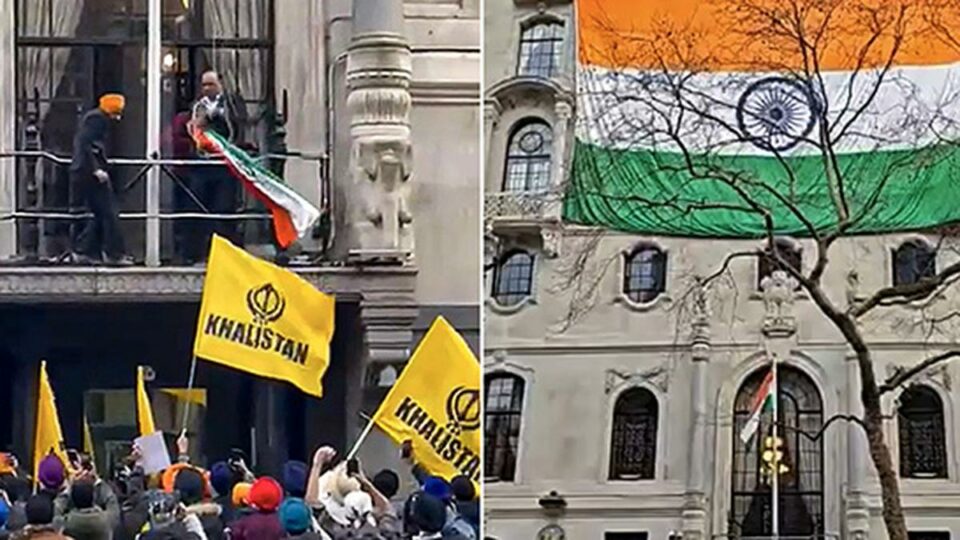How can understanding the broader context of attacks on diplomatic missions help in combating terrorism?
Caught in Action: NIA Chargesheets Mastermind Behind 2023 Indian High Commission Attack in London
Recently, the National Investigation Agency (NIA) has filed a chargesheet against the mastermind behind the 2023 attack on the Indian High Commission in London. This development holds significant london-crowd-left-spellbound-by-wing-chuns-mesmerizing-techniques/” title=”London Crowd Left Spellbound by Wing Chun's Mesmerizing Techniques”>implications for national security and the fight against terrorism. Let’s delve into the details of this case and understand the broader context of such attacks on diplomatic missions.
The Attack
The attack on the Indian High Commission in London in 2023 sent shockwaves across the diplomatic world. It highlighted the vulnerability of diplomatic missions to terrorist threats and raised concerns about the safety of embassy staff and visitors. The attack resulted in casualties and caused diplomatic tensions between India and the UK, prompting swift action from law enforcement agencies.
The Mastermind
The NIA’s chargesheet has named the mastermind behind the attack, providing crucial insights into the planning and execution of the assault. The individual’s background, affiliations, and motives will be thoroughly scrutinized as part of the legal proceedings, shedding light on the underlying factors driving such acts of terrorism.
Implications for National Security
The NIA’s chargesheet serves as a testament to the Indian government’s commitment to addressing terrorism and safeguarding national security. It sends a strong message to perpetrators of such attacks that they will be held accountable for their actions. Additionally, the chargesheet provides valuable intelligence that can be used to strengthen security measures and prevent similar incidents in the future.
Broader Context
Attacks on diplomatic missions are not isolated incidents, but part of a larger pattern of terrorism targeting symbols of national identity and sovereignty. Understanding the motivations and strategies behind such attacks is crucial for crafting effective counterterrorism policies and strengthening international cooperation in combating the threat of terrorism.
Conclusion
The NIA’s chargesheet against the mastermind behind the 2023 Indian High Commission attack in London represents a significant milestone in the fight against terrorism. It underscores the importance of robust law enforcement and intelligence efforts in addressing security threats and protecting diplomatic assets. By bringing the perpetrators of such attacks to justice, we send a clear message that terrorism will not be tolerated, and those responsible will be held accountable.
Case Studies
Analysis of past attacks on diplomatic missions can provide valuable insights into the modus operandi of terrorist groups and their evolving tactics. By studying case studies, security agencies can identify patterns, vulnerabilities, and best practices for mitigating the risk of future attacks.
First-hand Experience
Interviews with security experts, diplomats, and law enforcement officials who have firsthand experience in dealing with security threats to diplomatic missions can offer unique perspectives on the challenges and strategies involved in protecting such high-profile targets.
Practical Tips and Benefits
Practical tips for enhancing the security of diplomatic missions, such as implementing advanced surveillance systems, conducting threat assessments, and fostering international cooperation, can contribute to the overall resilience of diplomatic assets. Additionally, highlighting the benefits of a robust security framework can underscore the importance of investing in preventive measures to safeguard national interests.
The NIA charges a UK national, Inderpal Singh Gaba, in the case of violent attacks at the Indian High Commission in London in March 2023. Originally from Delhi, Mr. Gaba has been charged for actively participating in an anti-India protest on March 22, 2023, as part of a “Khalistani secessionist agenda.” After exhaustive investigations and his arrest on April 25, it was established that he played a role in the secessionist activity.
In December 2023, immigration authorities at the Attari border detained Inderpal Singh Gaba upon his arrival from London via Pakistan based on a Look Out Circular. The NIA initiated investigations against him and prohibited him from leaving the country during the probe’s continuation. During their probe, the agency seized and scrutinized Mr. Gaba’s mobile phone data which revealed incriminating videos/photos of the incident establishing his involvement.
According to the NIA, these attacks were planned and carried out as retaliation to Punjab Police’s action against Amritpal Singh, chief of Waris Punjab De. The objective was to influence crackdowns on both Amritpal Singh and his group. The violent attack was strategically aimed at advancing Khalistan by attempting to secede Punjab from India.
The National Investigation Agency alleges that these events were intended to further Khalistan’s cause through violent means published on September 05 by PTI News Credit: PTI


